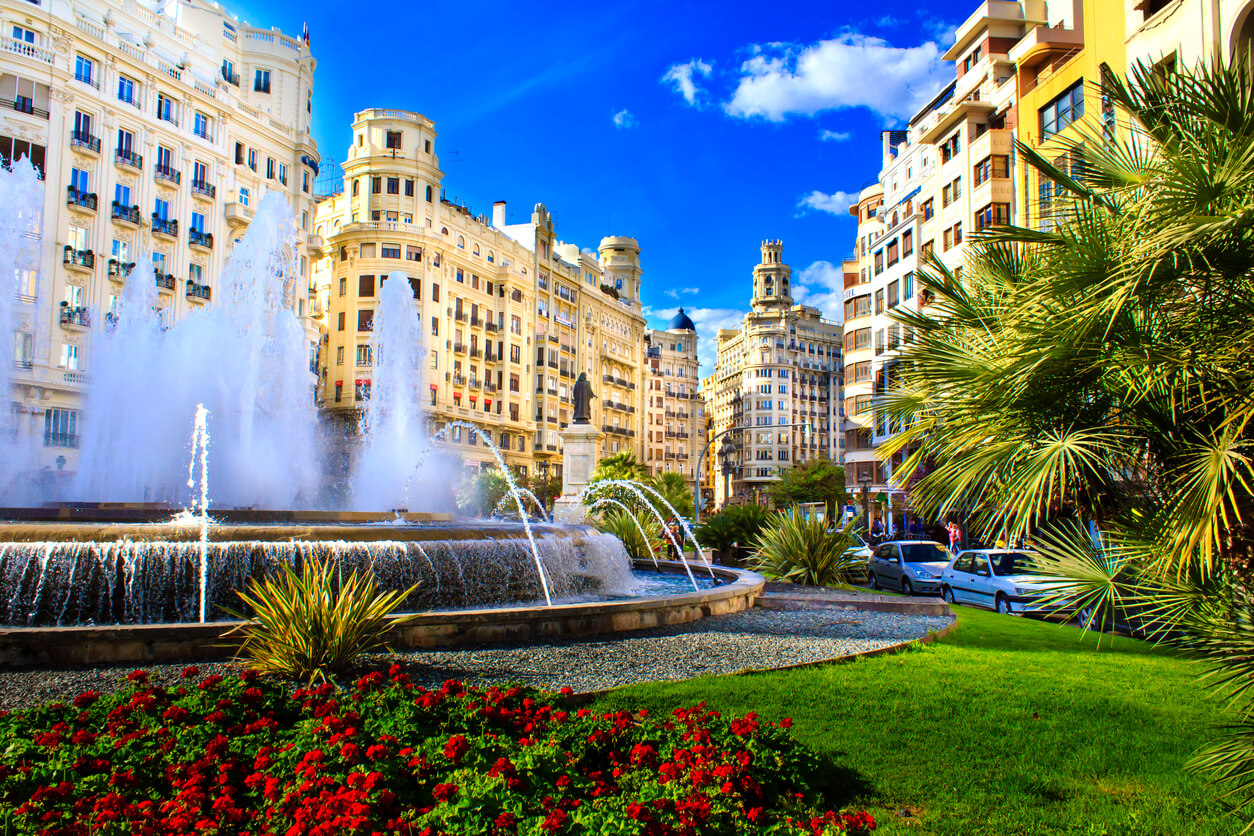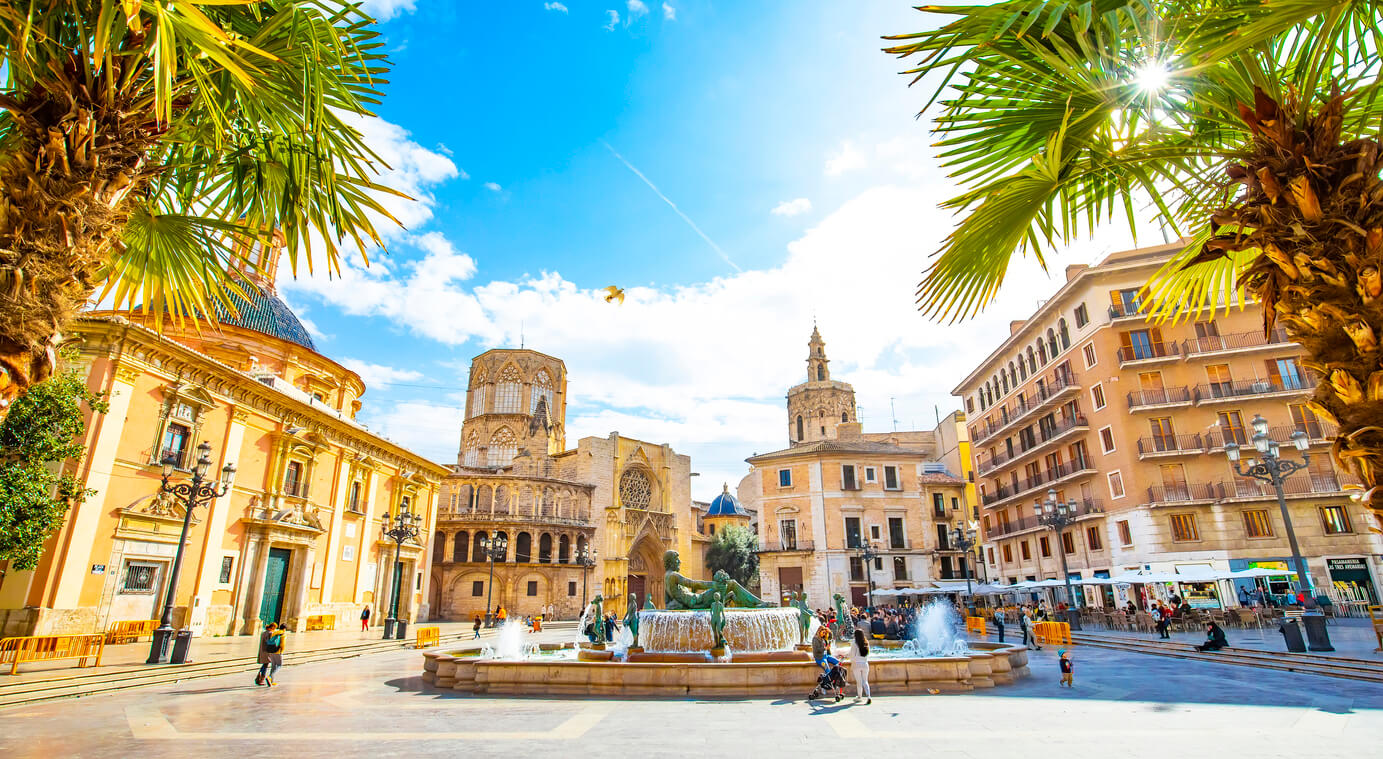11 Girl Names of Valencian Origin


Reviewed and approved by the pediatrician Marcela Alejandra Caffulli
Valencia is a region of Spain where a considerable portion of the population speaks both Spanish and Catalan. In this mix of cultures lies an authentic language that brings originality and personality to the following girl names of Valencian origin.
If there’s something that holds your heart in this land, why not dare to delve into its history to discover an option that can captivate you? Here are some options.
A bit of linguistic history: Valencian
Valencian is a Romance language spoken in the Valencian Community (Spain) and in El Carche (Region of Murcia). In this regard, it’s considered a proper language (according to the Resolution concerning principles and criteria for protecting the name and identity of Valencian).
This esteem has been manifested in all those who, throughout the centuries, have used it as a habitual vehicle of communication. Therefore, we’re referring to a dialect with a long tradition, which yields surprising names with different and original meanings and pronunciations.
Girl names of Valencian origin that will captivate you
We’ve used the options and their etymologies collected from the official website of Valencian Names. Take note!
1. Àngels
Coming from the invocation of the Virgin of the Angels, this name honors the church of “Our Lady of the Angels”, located in the Cabañal (a neighborhood of the city of Valencia). Also to its convent, which is one of the most emblematic religious monuments with historical nuances of the city of Valencia.
2. Cenòbia, one of the most original girl names of Valencian origin
This name has been erroneously related to the word “cenobio,” which is a voice from the Greek that formerly meant “life in common.”
However, today we know that it comes from the Greek zenobi, which means “life of Zeus or Zeus gives life.”
3. Choana
The Valencian variant of Juana, which comes from the Hebrew “God has forgiven” or “God is merciful.” In this regard, it’s a girl’s name that allows for different spellings. Therefore, they can be found in different forms depending on the place of origin.

4. Fela
This is the feminine diminutive of Rafela, which in itself is the Valencian variant that comes from Rafaela, a name of Hebrew origin that has the meaning of “God has healed.”
5. Giner
A valencian surname that expressly alludes to the month of January. Unlike the Catalan version (Ganer), in Valencian, it’s phonetically pronounced with the “i” and with the final “r.”
6. Quela, one of the most special girl names of Valencian origin
Quela is the Valencian diminutive of Miquela. According to etymology, it comes from Hebrew and means “no one like God.”
In this regard, it can be said that Saint Miquel is the greatest archangel in Christianity. Therefore, he’s the protector of the Church and is considered the advocate of God’s chosen people. So much so, that the Church considers him patron and universal protector.
7. Llucina
The Valencian variant of Lucina, which comes from the Latin name Lluci. That is, its origin goes back to a Roman goddess who presided over births, because of its meaning that alludes to “light.”
8. Nàcia
Like the previous option, this is the diminutive of Ignacia. Traditionally, it has been erroneously interpreted as “ardent” by analogy with the Latin word igneo, but the truth is that it alludes to a woman “who has strong feelings.”
9. Nela
Nela is the Valencian diminutive of Manuela, which comes to symbolize that “God is with us.”
10. Nuria
Although it’s not clear where the etymological origin of Nuria comes from, it’s certain that some experts point out that it’s of Valencian origin. In this regard, it can be found as either Nuria or Núria.
11. Oròsia, another of the most beautiful girl names of Valencian origin
According to Álex Serrano, this is a name from a century ago, but its original meaning is unknown. However, what’s certain is that older people in Valencia used to choose it frequently. Therefore, it’s also a good option to perpetuate the lineage of this beautiful land.

Have any of these girl names of Valencian origin reminded you of these lands?
Maybe you have some special bond that unites you with Valencia. It’s not surprising that the city that’s listed as a common heritage of humanity by UNESCO is able to raise passion among visitors who walk its streets.
In this regard, have any of these options touched your heart? If so, which one would you choose?
Valencia is a region of Spain where a considerable portion of the population speaks both Spanish and Catalan. In this mix of cultures lies an authentic language that brings originality and personality to the following girl names of Valencian origin.
If there’s something that holds your heart in this land, why not dare to delve into its history to discover an option that can captivate you? Here are some options.
A bit of linguistic history: Valencian
Valencian is a Romance language spoken in the Valencian Community (Spain) and in El Carche (Region of Murcia). In this regard, it’s considered a proper language (according to the Resolution concerning principles and criteria for protecting the name and identity of Valencian).
This esteem has been manifested in all those who, throughout the centuries, have used it as a habitual vehicle of communication. Therefore, we’re referring to a dialect with a long tradition, which yields surprising names with different and original meanings and pronunciations.
Girl names of Valencian origin that will captivate you
We’ve used the options and their etymologies collected from the official website of Valencian Names. Take note!
1. Àngels
Coming from the invocation of the Virgin of the Angels, this name honors the church of “Our Lady of the Angels”, located in the Cabañal (a neighborhood of the city of Valencia). Also to its convent, which is one of the most emblematic religious monuments with historical nuances of the city of Valencia.
2. Cenòbia, one of the most original girl names of Valencian origin
This name has been erroneously related to the word “cenobio,” which is a voice from the Greek that formerly meant “life in common.”
However, today we know that it comes from the Greek zenobi, which means “life of Zeus or Zeus gives life.”
3. Choana
The Valencian variant of Juana, which comes from the Hebrew “God has forgiven” or “God is merciful.” In this regard, it’s a girl’s name that allows for different spellings. Therefore, they can be found in different forms depending on the place of origin.

4. Fela
This is the feminine diminutive of Rafela, which in itself is the Valencian variant that comes from Rafaela, a name of Hebrew origin that has the meaning of “God has healed.”
5. Giner
A valencian surname that expressly alludes to the month of January. Unlike the Catalan version (Ganer), in Valencian, it’s phonetically pronounced with the “i” and with the final “r.”
6. Quela, one of the most special girl names of Valencian origin
Quela is the Valencian diminutive of Miquela. According to etymology, it comes from Hebrew and means “no one like God.”
In this regard, it can be said that Saint Miquel is the greatest archangel in Christianity. Therefore, he’s the protector of the Church and is considered the advocate of God’s chosen people. So much so, that the Church considers him patron and universal protector.
7. Llucina
The Valencian variant of Lucina, which comes from the Latin name Lluci. That is, its origin goes back to a Roman goddess who presided over births, because of its meaning that alludes to “light.”
8. Nàcia
Like the previous option, this is the diminutive of Ignacia. Traditionally, it has been erroneously interpreted as “ardent” by analogy with the Latin word igneo, but the truth is that it alludes to a woman “who has strong feelings.”
9. Nela
Nela is the Valencian diminutive of Manuela, which comes to symbolize that “God is with us.”
10. Nuria
Although it’s not clear where the etymological origin of Nuria comes from, it’s certain that some experts point out that it’s of Valencian origin. In this regard, it can be found as either Nuria or Núria.
11. Oròsia, another of the most beautiful girl names of Valencian origin
According to Álex Serrano, this is a name from a century ago, but its original meaning is unknown. However, what’s certain is that older people in Valencia used to choose it frequently. Therefore, it’s also a good option to perpetuate the lineage of this beautiful land.

Have any of these girl names of Valencian origin reminded you of these lands?
Maybe you have some special bond that unites you with Valencia. It’s not surprising that the city that’s listed as a common heritage of humanity by UNESCO is able to raise passion among visitors who walk its streets.
In this regard, have any of these options touched your heart? If so, which one would you choose?
All cited sources were thoroughly reviewed by our team to ensure their quality, reliability, currency, and validity. The bibliography of this article was considered reliable and of academic or scientific accuracy.
- Nomsvalencians.com. (s.f.). Nombres Valencianos antiguos y modernos. Consultado el 25 de abril 2023. https://nombresvalencianos.com/
- Diari Oficial de la Generalitat Valenciana. (2005, 29 de marzo). Dictamen sobre los principios y criterios para la defensa de la denominación y la entidad del valenciano. Acadèmia Valenciana de la Llengua. Consultado el 25 de abril 2023. https://dogv.gva.es/portal/ficha_disposicion_pc.jsp?sig=1853/2005&L=1
- Real Acadèmia de Cultura Valenciana. (s.f.). Inicio. Consultado el 25 de abril 2023. http://racv.es/es
- Villa, R. P. (2017). El Faro de El Cabanyal (Valencia). Actas del Décimo Congreso Nacional y Segundo Congreso Internacional Hispanoamericano de Historia de la Construcción: Donostia-San Sebastián, 3 – 7 octubre 2017, 1229–1238. https://dialnet.unirioja.es/servlet/articulo?codigo=7332320
- Instituto de Historia y Heráldica Familiar. (s.f.). Giner. https://www.heraldicafamiliar.com/?s=Giner&tipobusqueda=apellidos
This text is provided for informational purposes only and does not replace consultation with a professional. If in doubt, consult your specialist.








